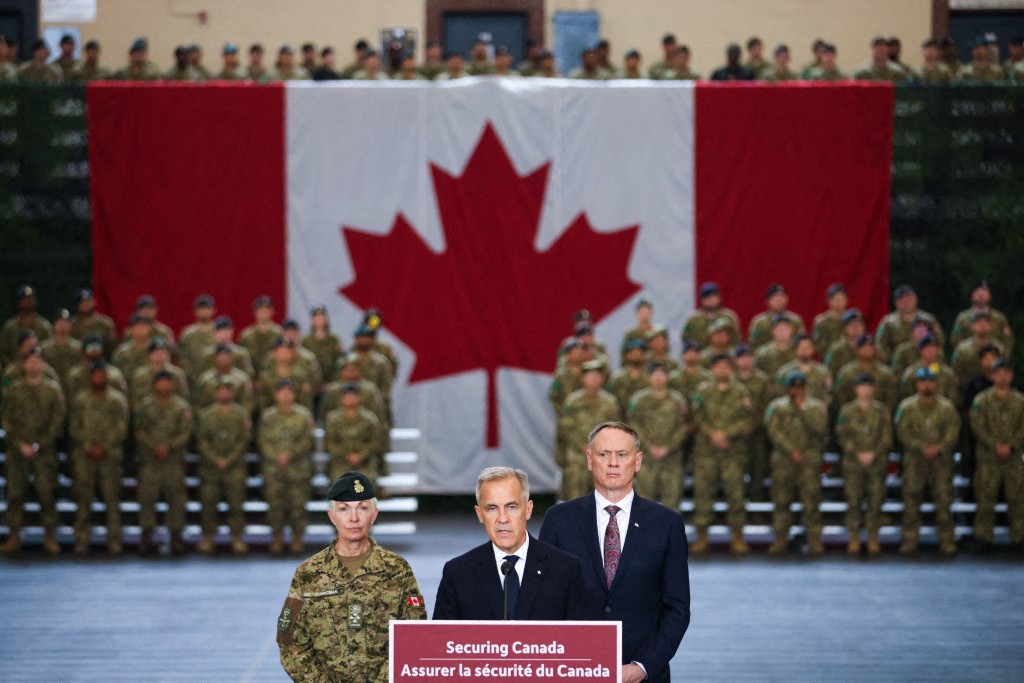OPED By: Air Marshal (R) RGK Kapoor
In one of the dastardliest acts, Pakistani-sponsored and trained terrorists gunned down 26 innocent Indian tourists in Baisaran meadows close to Pahalgam on 22 Apr 25.
There is palpable anger in every Indian since this was clearly a targeted killing of Hindu men in front of their families, in the presence of numerous locals. One must also not take away the sacrifice of one local in the effort to snatch the weapon from a terrorist.
Like, after Uri and Pulwama atacks, the voices for retribution are rising; in fact, Prime Minister Modi, while addressing a rally in Madhubani, Bihar, categorically stated that “we will identify, track and punish every terrorist and their backers and we will pursue them to the ends of the earth”.
This is the strongest reaction from the Prime Minister after the three major terror attacks of Uri, Pulwama, and Pahalgam. It is the clearest expression of India’s resolve and likely extent of response.
Holding in abeyance the Indus Water Treaty has been the most significant step taken by India, since it will directly impact the common Pakistani citizen in the heartland of Punjab.
The entire world has condemned the abhorrent act in the strongest terms. India has received unequivocal support, including from the Director of National Intelligence of the USA, as well as from Tulsi Gabbard, who assured India of full support and assistance in bringing the attackers to justice.
This is a noteworthy statement from the US administration. American assistance would be immensely helpful in augmenting Indian intelligence capability in tracking down the terrorists. This would also provide proof to the world of the complicity of the Pakistani establishment, something Pakistan has repeatedly used as an excuse in previous terror attacks.
The Indian government immediately announced numerous measures against Pakistan to convey India’s resolve that business can’t continue as usual till Pakistan unequivocally stops aiding and abetting terrorism.
Inputs from various quarters also indicate that all options are on the table, and the response this time will be multidimensional and robust. The counterterror campaign has also gained impetus in the valley with the apprehension of many terrorists and their sympathisers.
India has suffered innumerable casualties from acts of terror over the last 35 years. The intensity has ebbed and flowed. Historically, India’s response has been subdued/ measured till the surgical strike after the Uri attack and the air strike after the Pulwama attack.
Looking back, did Indian responses create the desired effect? In the long term, India’s actions have not really deterred Pakistan from sponsoring terrorism.
The strategy of a thousand cuts has bled India, without significant cost to Pakistan. Indian actions have been more tactical and not sustained over the long term.
Therefore, a long-term strategy embedded with operational and tactical actions must be implemented as a response to this attack.
India must not run a 100-meter dash but tire out Pakistan and bring them to their knees in a marathon, since India is a much more powerful country that can sustain long-term action on multiple fronts. The Israel-Hamas conflict highlights the difficulties in dealing with terror networks and their supporters.
Despite the economic crisis, the Pakistan military has continued to build capabilities in all three domains, thanks to its all-weather friend, China, and Turkey. So, if India does go kinetic, which seems probable, then Pakistan is likely to be covertly supported by China and Turkey, especially in light of the evolving geostrategic landscape in the region.

The Pakistan Army presently faces multiple challenges. The Pakistani population does not see the army as its messiah and savior; there is growing unrest in Balochistan, Khyber Pakhtunkhwa, Sindh, and along the Durand line with Afghanistan. Loss of credibility and deployments across the country create exploitable weaknesses.
Any kinetic action is likely to draw a response from the Pakistan military, like the Operation Swift Retort after the Balakot strike by India in 2019.
This could have an escalatory effect, given the current state of relations and the state of the Pakistani Army. The Pakistan military has already gone to a heightened state of alert, including some media reports of mobilization in certain areas.
Kinetic actions could be planned in a manner that the escalation control remains with India in consonance with the desired long-term effects. It is important that India hits where it hurts the most, and any retaliation by Pakistan would be met with a stronger response. The aim would be to impose prohibitive costs.
Sustained military activity could be initiated in all three domains —land, sea, and air —to progressively drain Pakistan’s capacity to retaliate. Judiciously calibrating these actions would keep Pakistan guessing about India’s real intentions. Any misadventure during this period by Pakistan would allow an unfettered response from India.
The current situation along the borders with China, Pakistan, Bangladesh, and Myanmar should be factored in. Hitting terrorist camps, which have frugal infrastructure and can be rapidly vacated, will not hurt Pakistan; it would be mere signaling of capability.
Targeting economic support to terrorist organisations and terrorist leadership would create the desired effect. The fear that one is not safe in one’s own country is the desired outcome.
This can be done overtly and covertly while ensuring anonymity. India must invest in any capabilities necessary to stealthily neutralize the target in near real-time without worrying too much about collateral damage. Pakistan is not like Hamas, and hence our methods would have to be different.
A proactive, not a reactive, approach is the need of the hour. India must have a game plan and execute it as per its own timelines, which keeps Pakistan off guard; the plan must inflict insurmountable pain to Pakistan, especially its military.
The measures could include declaring Pakistan a state sponsor of terrorism, garnering world support to preclude any interference against military or unconventional actions by India, stopping any military supplies to Pakistan from Western nations, and identifying and stifling the Pakistan Army’s businesses.
Work closely with Russia, Saudi Arabia, and the UAE to curb crude oil supplies to Pakistan. Work with the US to apply strict controls on Pakistan in the use of military equipment supplied by the USA under the foreign military assistance scheme, including a freeze on recent approval of $397 million for maintaining F-16s, especially after the cessation of US operations in Afghanistan. Conduct concentrated information warfare against the Pakistani establishment and ISI.

Along with offensive measures, strong defensive measures are also important. The current counter-terrorism grid involves thousands of uniformed personnel and intelligence agencies. Their coordination and technologies need to be strengthened. Artificial Intelligence could be used to map routes, identify terrorists, their handlers, voice signatures, and likely supporters within the local community.
India must build on the support received from the local population after this reprehensible incident. The tourists must be confident that the administration is capable of protecting them by ensuring visibility and availability of uniformed personnel and closely controlling the tourist movement to places of attraction. The goodwill earned locally in recent years must not be allowed to slip.
Recent changes in terrorist activities highlight the innovative approach of surprising the security forces, regularly striking where the security is thin or absent (Pahalgam is an example), and doing the unexpected.
India should maintain a robust security and counter-terrorism posture along the Line of Control (LoC) and in the hinterland. There should be no letup in the pressure that is currently being applied. The intelligence needs to be strengthened and higher accountability must be demanded from all concerned.
The terrorist attack in Pahalgam has shaken the nation. There is palpable anger and demand for visible action against the perpetrators of this heinous act, their handlers, and sponsors.
It is believed that this time, the retribution must not be a one-off event; a definitive change can only be expected if India’s actions are sustained and strongly implemented until the desired outcomes are achieved.
Multi-dimensional measures would inflict desired pain and facilitate a favourable end state. The development of specific military capabilities will also serve as a further deterrent.
Ultimately, every action should have an effect that brings about a change in the behavior of the Pakistani establishment. The end state would be a serious degradation of the deep state in Pakistan, leading to a loss of sanctuary for terrorist leadership. This end state is possible if India plays the long game and does not release the pressure until the task is achieved.
- Air Marshal (R) RGK Kapoor, PVSM, AVSM, VM, is a retired officer of the Indian Air Force. He served as the Air Officer Commanding-in-Chief (AOC-in-C) of Central Air Command.
- Mail EurAsian Times at editor (at) eurasiantimes.com



